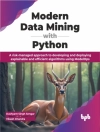This book constitutes the refereed proceedings of the 24th International Conference on Logic Programming, ICLP 2008, held in Udine, Italy, in December 2008. The 35 revised full papers together with 2 invited talks, 2 invited tutorials, 11 papers of the co-located first Workshop on Answer Set Programming and Other Computing Paradigms (ASPOCP 2008), as well as 26 poster presentations and the abstracts of 11 doctoral consortium articles were carefully reviewed and selected from 177 initial submissions. The papers cover all issues of current research in logic programming – they are organized in topical sections on applications, algorithms, systems, and implementations, semantics and foundations, analysis and transformations, CHRs and extensions, implementations and systems, answer set programming and extensions, as well as constraints and optimizations.
Inhaltsverzeichnis
Invited Talk.- The Life of a Logic Programming System.- Special Session.- Uniting the Prolog Community.- Invited Tutorials.- Constraint Handling Rules.- Back to Interval Temporal Logics.- Systems Biology: Models and Logics.- Separation Logic Tutorial.- Years of Stable Models Semantics Celebration.- Authorization and Obligation Policies in Dynamic Systems.- Twelve Definitions of a Stable Model.- Sixty Years of Stable Models.- The DLV Project: A Tour from Theory and Research to Applications and Market.- Using Answer Set Programming for Knowledge Representation and Reasoning: Future Directions.- Building a Knowledge Base System for an Integration of Logic Programming and Classical Logic.- SMS and ASP: Hype or TST?.- Quo Vadis Answer Set Programming?.- Answer Set Programming without Unstratified Negation.- Here’s the Beef: Answer Set Programming !.- Equivalences in Answer-Set Programming by Countermodels in the Logic of Here-and-There.- Dynamic Programming Algorithms as Products of Weighted Logic Programs.- Regular Papers.- Detecting Inconsistencies in Large Biological Networks with Answer Set Programming.- A Logic Programming Approach to Home Monitoring for Risk Prevention in Assisted Living.- Automatic Composition of Melodic and Harmonic Music by Answer Set Programming.- On the Efficient Execution of Prob Log Programs.- Engineering an Incremental ASP Solver.- Concurrent and Local Evaluation of Normal Programs.- On the Continuity of Gelfond-Lifschitz Operator and Other Applications of Proof-Theory in ASP.- ? lean TA P: A Declarative Theorem Prover for First-Order Classical Logic.- Towards Ludics Programming: Interactive Proof Search.- Declarative Semantics for Active Integrity Constraints.- A Folding Algorithm for Eliminating Existential Variables from Constraint Logic Programs.- Negative Ternary Set-Sharing.- Termination of Narrowing Using Dependency Pairs.- Dynamic Analysis of Bounds Versus Domain Propagation.- Lparse Programs Revisited: Semantics and Representation of Aggregates.- Compiling Fuzzy Answer Set Programs to Fuzzy Propositional Theories.- Abstract Answer Set Solvers.- Partial Functions and Equality in Answer Set Programming.- Computable Functions in ASP: Theory and Implementation.- Composing Normal Programs with Function Symbols.- Verification from Declarative Specifications Using Logic Programming.- Prolog Based Description Logic Reasoning.- Resource Management Policy Handling Multiple Use-Cases in MPSo C Platforms Using Constraint Programming.- Optimization of CHR Propagation Rules.- Termination Analysis of CHR Revisited.- Transactions in Constraint Handling Rules.- Cadmium: An Implementation of ACD Term Rewriting.- Quantified Equilibrium Logic and Foundations for Answer Set Programs.- Elimination of Disjunction and Negation in Answer-Set Programs under Hyperequivalence.- Relativized Hyperequivalence of Logic Programs for Modular Programming.- Program Correspondence under the Answer-Set Semantics: The Non-ground Case.- Efficient Algorithms for Functional Constraints.- Two WAM Implementations of Action Rules.- Constraint-Level Advice for Shaving.- A High-Level Implementation of Non-deterministic, Unrestricted, Independent And-Parallelism.- Short Papers.- Inference with Logic Programs with Annotated Disjunctions under the Well Founded Semantics.- Safe Formulas in the General Theory of Stable Models (Preliminary Report).- Non-determinism and Probabilities in Timed Concurrent Constraint Programming.- Stochastic Behavior and Explicit Discrete Time in Concurrent Constraint Programming.- Top Log: ILP Using a Logic Program Declarative Bias.- Towards Typed Prolog.- Environment Reuse in the WAM.- Logic Engines as Interactors.- Global Storing Mechanisms for Tabled Evaluation.- Thread-Based Competitive Or-Parallelism.- A Logic Language with Stable Model Semantics for Social Reasoning.- ASPVIZ: Declarative Visualisation and Animation Using Answer Set Programming.- Removing Redundancy from Answer Set Programs.- ASPARTIX: Implementing Argumentation Frameworks Using Answer-Set Programming.- An Implementation of Extended P-Log Using XASP.- Compiling and Executing Declarative Modeling Languages to Gecode.- Telecommunications Feature Subscription as a Partial Order Constraint Problem.- A Constraint Logic Programming Approach to Automated Testing.- Turing-Complete Subclasses of CHR.- A Soft Approach to Multi-objective Optimization.- A Multi-theory Logic Language for the World Wide Web.- A Case Study in Engineering SQL Constraint Database Systems (Extended Abstract).- Policy-Driven Negotiations and Explanations: Exploiting Logic-Programming for Trust Management, Privacy & Security.- An Algorithm for Sophisticated Code Matching in Logic Programs.- Trace Analysis for Predicting the Effectiveness of Partial Evaluation.- A Sketch of a Complete Scheme for Tabled Execution Based on Program Transformation.- Probabilistic and Concurrent Models for Security.- On the Hybridization of Constraint Programming and Local Search Techniques: Models and Software Tools.- Development of an Automatic Testing Environment for Mercury.- Resolving CSP with Naming Games.- Biosequence Analysis in PRISM.- Bi-dimensional Domains for the Non-overlapping Rectangles Constraint.- Extracting and Reasoning about Web Data.- Managing Quality of Service with Soft Constraints.- Top Log: ILP Using a Logic Program Declarative Bias.- Generalising Constraint Solving over Finite Domains.- Detection of Security Vulnerabilities Using Guided Model Checking.












